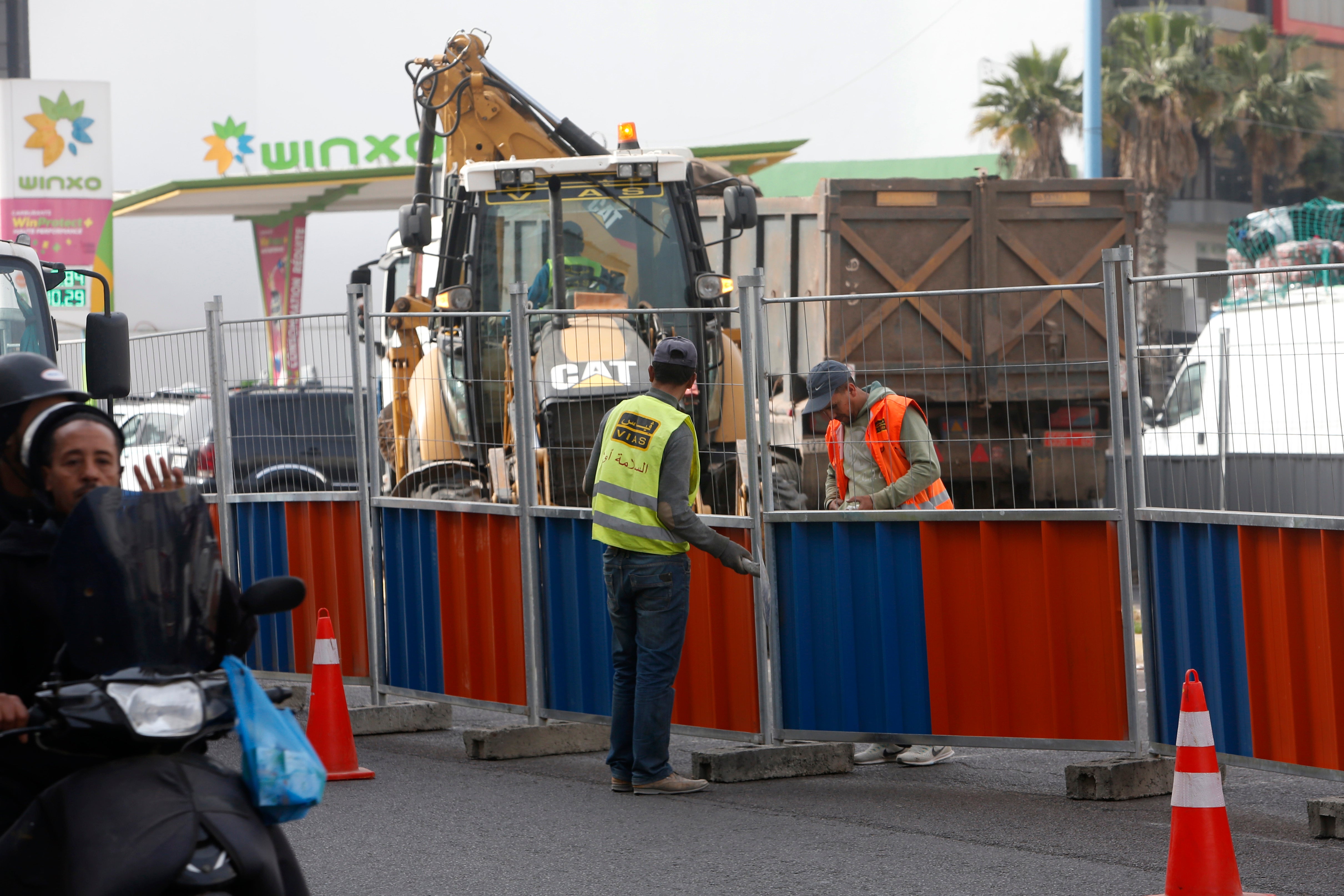Morocco imposes Ramadan curfew, despite vaccine success
Moroccan authorities have decided to enforce a night-time curfew during the holy month of Ramadan because of a recent rise in COVID-19 cases, as scientists announced the discovery of a new, local variant of the virus

Your support helps us to tell the story
From reproductive rights to climate change to Big Tech, The Independent is on the ground when the story is developing. Whether it's investigating the financials of Elon Musk's pro-Trump PAC or producing our latest documentary, 'The A Word', which shines a light on the American women fighting for reproductive rights, we know how important it is to parse out the facts from the messaging.
At such a critical moment in US history, we need reporters on the ground. Your donation allows us to keep sending journalists to speak to both sides of the story.
The Independent is trusted by Americans across the entire political spectrum. And unlike many other quality news outlets, we choose not to lock Americans out of our reporting and analysis with paywalls. We believe quality journalism should be available to everyone, paid for by those who can afford it.
Your support makes all the difference.Moroccan authorities decided Wednesday to enforce a night-time curfew during the holy month of Ramadan because of a recent rise in COVID-19 cases, as scientists announced the discovery of a new, local variant of the virus.
Many Moroccans voiced their anger over the decision on social networks, describing it as another blow to many businesses already struggling to survive, as well as to family gatherings that are a central part of the holiday.
While the North African kingdom has had one of the region's most successful vaccination programs so far, it is also seeing a growth in coronavirus infections, especially in Casablanca the largest city.
A curfew from 8 p.m to 6 a.m has been in place since December, and the Moroccan government decided Wednesday to extend it through Ramadan, which starts April 13 in Morocco.
Because observant Muslims don't eat or drink in the daytime during Ramadan, cafes and restaurants depend on nighttime business that's now off-limits because of the curfew.
Countries around the Mideast imposed some virus restrictions and curfews for Ramadan last year, and several are considering, or renewing restrictions, this year.
Morocco has reported more than 499,000 Covid-19 infections with 8,865 deaths.
The kingdom has administered the highest number of inoculations in Africa so far — 8.3 million doses for a population of 36 million people since vaccinations began Jan. 29. The per-person vaccination rate is higher than in some European countries that started a month earlier, but concerns are rising that Morocco's vaccine supplies are drying up and the rate could slow.
Morocco is using vaccines from AstraZeneca and China’s Sinopharm. Millions more doses are expected eventually from both companies as well as from the global COVAX program to provide vaccines to low and middle-income countries.
Meanwhile, the Moroccan government's National Scientific and Technical Committee for COVID-19 announced the discovery of a new variant of the virus first detected in the southern city of Ouarzazate. It was not immediately clear if it is linked to the recent spike in infections in the kingdom.
The new variant can be classified as “100% Moroccan," said professor Azzedin Ibrahimi, member of the committee and director of the biotechnology laboratory at the Faculty of Medicine and Pharmacy in the capital Rabat He said Sunday that it was detected as part of a study conducted by Moroccan researchers into the spread of various variants.
___
Follow all of AP’s pandemic coverage at https://apnews.com/hub/coronavirus-pandemic, https://apnews.com/hub/coronavirus-vaccine and https://apnews.com/UnderstandingtheOutbreak